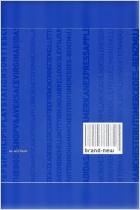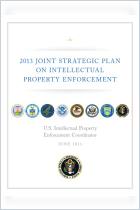
Brand Protection in the Online World
A Comprehensive Guide
Recommendation
The Internet gives brands unlimited potential for conducting business, but it also opens the risk of your brand being hijacked for fraudulent purposes by crooks working a variety of angles. Online branding expert David N. Barnett explains what you need to know to protect your brand against ever more sophisticated online infringement. He doesn’t shy away from the technical nitty-gritty. In one welcome and helpful feature, Barnett posts information boxes throughout his text to explain underlying core concepts and formulas for estimating the financial damage that your company could face from brand infringement. Although his handy manual relies on somewhat dated statistics, he has a lot to teach you about protecting your brand and products from piracy and infringement. Concrete examples of the many ways brands are vulnerable, helpful templates for enforcement notices and pointers for conducting comprehensive searches will help you – or the agency you hire – kick-start your brand protection project.
Summary
About the Author
United Kingdom-based David N. Barnett has a PhD in planetary geophysics and served as a climate change scientist for several years. Since 2004, he has worked in the Internet brand-protection industry as an analyst and consultant in a variety of industries.























Comment on this summary